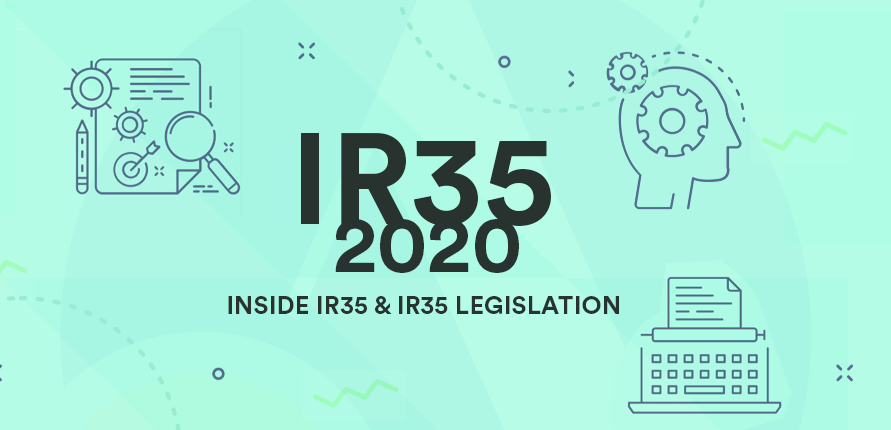
Inside IR35 & IR35 Legislation
What`s employment status and how is it relevant to IR35 tax rules: Everyone working is classified as either employees, workers or self-employed.
To articulate the term employees, we should take a closer look at the concepts, such as;
- Mutuality,
- Level of obligation,
- The personal service company,
Whereas, with self-employed, we`d mean an “employee” who works in business on their own accounts.
Yet both employers and contractors prefer being classified as “contractors” as it gives more benefits, for instance, a strong position in bargaining and really works if you have skills to sell.
How about the other factors that HMRC has been challenging for a long time, such as IR35 and umbrella companies or in other words, in larger establishments?
From 6 April 2017 IR 35 status has been determined by the client in the public sector, not the contractor. In other words, as long as the client decides it applies, tax is deducted at source using RTI (Real Time Information). However; it`s not the case vice-versa, which puts the contractor in a relatively disadvantaged position.
New Off-Payroll (IR35) rules in the public sector
Roll out to the private sector is Apil 2020. New off-payroll working rules will be similar to those already placed in the public sector. As of April 2020, small and medium businesses engaging contractors will become responsible for determining employment status in the same way as public sector establishments. The criteria will be embedded into the existing Companies Acts 2006. HMRC has announced that they will not carry out targeted campaigns into previous years for those who started to pay tax under the new scheme.
What should small businesses Do now?
The new scheme will include the followings:
- For a business-critical contractor, the rate will rise up.
- They will engage with contractors as if they`re part of the PAYE scheme, which brings more compliance work for small businesses as it covers social security benefits and some certain employment law and protections, for instance, “holiday payment”.
- The first respondent of the contractor will be the umbrella companies, the engagement will have been carried out through them.
- Companies will pay only margins to the staffing companies, which makes “margin only” contract sides come in direct engagement.
- IR35 in the public sector will apply only in “full-outsourced” services rather than the provision of workers` services, which differs PS IR35 than in the Private Sector version.
- IR35 will apply to “project-based” contracts.
The upcoming scheme is to cause a fundamental change in the core relationship between a Public Sector Company and its contractors. As of April 2020, PSC will need to obtain some additional information and naturally take care of more compliance works in its payroll plate. The downside of the scheme, in overall, would be the fact that the fees are to increase, which will cause stiffer negotiations between PSC and contractor, and even renegotiations between the two sides if there`s an existing contractor to reflect the possible fiscal burden.
It is imperative that you should start preparing to manage these upcoming changes. Businesses that use contractors should start to carry out initial assessments, such as having advised over the cost of NIC in the short term.
IR35 contractors are becoming employees?
Classification of a contractor will not be deemed as an employee, the scheme aims to make PSC in a position where they would be reliable for some principals in the relationship between contractors and themselves, such as statutory sick pay, statutory maternity pay, and pension auto-enrollments. In other words, it is a scheme that aims to enhance the contractors` legal position.
New IR35 in summary
The government's "Good Work Plan" will introduce these changes below;
- Extension of the right to a payslip
- New protection for gig economy workers
- A new right for all contractors to request more stable contracts in general
- The right to demand more clarification on contract agreements for the contractors.
- Holiday, maternity payment, sick payment right for zero-hour workers.
- Protection for agency workers.
After a handful of changes in taxation in 2019, such as MTD for VAT, changes in April 2020 appear to be another dazzling year for small and medium businesses, which use contractors.
Have yourself fully ready before 2020, the sooner you educate yourself, the easier you will have been through the next April. Better safe than sorry, call us now and let`s have a chat about your business` position in IR35 schemes.











